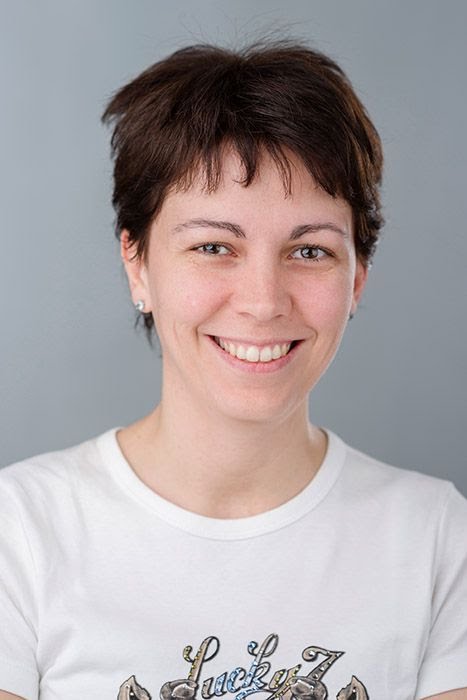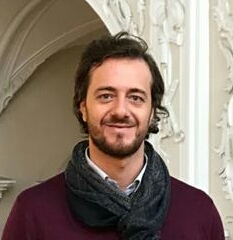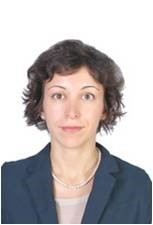Studying at the University of Verona
Here you can find information on the organisational aspects of the Programme, lecture timetables, learning activities and useful contact details for your time at the University, from enrolment to graduation.
Academic calendar
The academic calendar shows the deadlines and scheduled events that are relevant to students, teaching and technical-administrative staff of the University. Public holidays and University closures are also indicated. The academic year normally begins on 1 October each year and ends on 30 September of the following year.
Course calendar
The Academic Calendar sets out the degree programme lecture and exam timetables, as well as the relevant university closure dates..
| Period | From | To |
|---|---|---|
| primo semestre (lauree) | Sep 20, 2021 | Jan 14, 2022 |
| Periodo generico | Oct 1, 2021 | May 31, 2022 |
| secondo semestre (lauree) | Feb 21, 2022 | Jun 1, 2022 |
| Session | From | To |
|---|---|---|
| sessione invernale | Jan 17, 2022 | Feb 18, 2022 |
| sessione estiva | Jun 6, 2022 | Jul 15, 2022 |
| sessione autunnale | Aug 22, 2022 | Sep 16, 2022 |
| Session | From | To |
|---|---|---|
| sessione autunnale (validità a.a. 2020/2021) | Dec 6, 2021 | Dec 10, 2021 |
| sessione invernale (validità a.a. 2020/2021) | Apr 6, 2022 | Apr 8, 2022 |
| sessione estiva (validità a.a. 2021/2022) | Sep 5, 2022 | Sep 6, 2022 |
Exam calendar
Exam dates and rounds are managed by the relevant Economics Teaching and Student Services Unit.
To view all the exam sessions available, please use the Exam dashboard on ESSE3.
If you forgot your login details or have problems logging in, please contact the relevant IT HelpDesk, or check the login details recovery web page.
Should you have any doubts or questions, please check the Enrollment FAQs
Academic staff
 alessandro.barbazeni@univr.it
alessandro.barbazeni@univr.it
 paolo.braguzzi@univr.it
paolo.braguzzi@univr.it
 laura.chiaramonte@univr.it
laura.chiaramonte@univr.it
 stefano.gatti@univr.it
stefano.gatti@univr.it
Study Plan
The Study Plan includes all modules, teaching and learning activities that each student will need to undertake during their time at the University.
Please select your Study Plan based on your enrollment year.
1° Year
| Modules | Credits | TAF | SSD |
|---|
2° Year activated in the A.Y. 2022/2023
| Modules | Credits | TAF | SSD |
|---|
3° Year activated in the A.Y. 2023/2024
| Modules | Credits | TAF | SSD |
|---|
| Modules | Credits | TAF | SSD |
|---|
| Modules | Credits | TAF | SSD |
|---|
| Modules | Credits | TAF | SSD |
|---|
| Modules | Credits | TAF | SSD |
|---|
Legend | Type of training activity (TTA)
TAF (Type of Educational Activity) All courses and activities are classified into different types of educational activities, indicated by a letter.
Type D and Type F activities
Nei piani didattici di ciascun Corso di studio è previsto l’obbligo di conseguire un certo numero di crediti formativi mediante attività a scelta (chiamate anche "di tipologia D e F").
Oltre che in insegnamenti previsti nei piani didattici di altri corsi di studio e in certificazioni linguistiche o informatiche secondo quanto specificato nei regolamenti di ciascun corso, tali attività possono consistere anche in iniziative extracurriculari di contenuto vario, quali ad esempio la partecipazione a un seminario o a un ciclo di seminari, la frequenza di laboratori didattici, lo svolgimento di project work, stage aggiuntivo, eccetera.
Come per ogni altra attività a scelta, è necessario che anche queste non costituiscano un duplicato di conoscenze e competenze già acquisite dallo studente.
Quelle elencate in questa pagina sono le iniziative extracurriculari che sono state approvate dal Consiglio della Scuola di Economia e Management e quindi consentono a chi vi partecipa l'acquisizione dei CFU specificati, alle condizioni riportate nelle pagine di dettaglio di ciascuna iniziativa.
Si ricorda in proposito che:
- tutte queste iniziative richiedono, per l'acquisizione dei relativi CFU, il superamento di una prova di verifica delle competenze acquisite, secondo le indicazioni contenute nella sezione "Modalità d'esame" della singola attività;
- lo studente è tenuto a inserire nel proprio piano degli studi l'attività prescelta e a iscriversi all'appello appositamente creato per la verbalizzazione, la cui data viene stabilita dal docente di riferimento e pubblicata nella sezione "Modalità d'esame" della singola attività.
COMPETENZE TRASVERSALI
Scopri i percorsi formativi promossi dal Teaching and learning centre dell'Ateneo, destinati agli studenti iscritti ai corsi di laurea, volti alla promozione delle competenze trasversali: https://talc.univr.it/it/competenze-trasversali
ATTENZIONE: Per essere ammessi a sostenere una qualsiasi attività didattica, inlcuse quelle a scelta, è necessario essere iscritti all'anno di corso in cui essa viene offerta. Si raccomanda, pertanto, ai laureandi delle sessioni di dicembre e aprile di NON svolgere attività extracurriculari del nuovo anno accademico, cui loro non risultano iscritti, essendo tali sessioni di laurea con validità riferita all'anno accademico precedente. Quindi, per attività svolte in un anno accademico cui non si è iscritti, non si potrà dar luogo a riconoscimento di CFU.
| years | Modules | TAF | Teacher |
|---|---|---|---|
| 1° 2° | Marketing plan | D |
Virginia Vannucci
(Coordinator)
|
| years | Modules | TAF | Teacher |
|---|---|---|---|
| 1° 2° | Economics, financial statement and control of Italian healthcare and social care organizations | D |
Paolo Roffia
(Coordinator)
|
| years | Modules | TAF | Teacher |
|---|---|---|---|
| 1° 2° | AN INTRODUCTION TO LATEX TYPESETTING SYSTEM | D |
Alberto Peretti
(Coordinator)
|
| years | Modules | TAF | Teacher |
|---|---|---|---|
| 1° 2° | What paradigms beyond the pandemic? Individual vs. Society, Private vs. Public | D |
Federico Brunetti
(Coordinator)
|
Organization Design and People Management (2022/2023)
Teaching code
4S008952
Teacher
Coordinator
Credits
9
Language
Italian
Scientific Disciplinary Sector (SSD)
SECS-P/10 - ORGANIZATION AND HUMAN RESOURCE MANAGEMENT
Period
Secondo semestre (lauree) dal Feb 20, 2023 al May 31, 2023.
Learning objectives
The course aims to provide students with knowledge about the basic elements and fundamental institutions to understand how the organization works. To this end, the conceptual and operational tools are provided to read and design the organizational structures, and people management systems within organizations. The course also aims to develop the skills of reading and interpreting the different phenomena of the organizational culture of the company. At the end of the lessons, the student must be able to understand the basic concepts of business organization, to know the main categories of organizations as well as to understand the dynamics that govern the organizations themselves. It will also be able to understand how to structure the human resources’ value cycle in order to support the organization’s strategies. In addition, the student will be able to recognize opportunities arising from new technologies that facilitate the development of new business models. With reference to the applied comprehension skills, the student must be able to translate the theoretical concepts presented in the classroom in situations and concrete cases of business organizations.
Prerequisites and basic notions
No prerequisites
Program
The course aims to provide students with knowledge about the basic elements and fundamental institutions to understand how the organization works. To this end, the conceptual and operational tools are provided to read and design the organizational structures.
The course also aims to develop the skills of reading and interpreting the different phenomena of the organizational culture of the company.
At the end of the lessons, the student must be able to understand the basic concepts of business organization, to know the main categories of organizations as well as to understand the dynamics that govern the organizations themselves. In addition, the student will be able to recognize opportunities arising from new technologies that facilitate the development of new business models. With reference to the applied comprehension skills, the student must be able to translate the theoretical concepts presented in the classroom in situations and concrete cases of business organizations. As far as the human resources management module is concerned, the program is: the human Resources Value Cycle, human resources planning, recruitment, selection, and hiring Job design, human resources assessment.
Bibliography
Didactic methods
Lectures and company testimonials
Further details will be communicated to students at the beginning of class.
Learning assessment procedures
The exam will be written with 3 open-ended questions, on-site mode, one-hour duration.
Details will be communicated to students before the start of class.
Please note that the modalities of delivery of the exams could be subject to change in case of continuation of the pandemic emergency, following any measures of the Ministry of University and the University.
Evaluation criteria
The test is intended to ascertain:
- knowledge of the topics in the program, with particular reference to their application and methodological aspects;
- the ability to apply the logical schemes to the various problems presented;
- the depth and breadth of knowledge gained;
- the property of language;
- the ability to use the techniques and tools of the course.
The final evaluation, which takes into account any activities (case studies) carried out during the course, is expressed in 30ths.
Students who have taken the case study will receive from 2 to 4 points (in 30th) more, depending on the commitment dedicated to deepening the case.
Criteria for the composition of the final grade
The written test includes three open questions. Each question is worth 0 to 10 points. The final grade is obtained as the sum of three
questions. The extra 2 points for those who did the case correctly allows for honours if the score obtained from the three answers equals 10 for each answer
Exam language
Italiano
Career prospects
Module/Programme news
News for students
There you will find information, resources and services useful during your time at the University (Student’s exam record, your study plan on ESSE3, Distance Learning courses, university email account, office forms, administrative procedures, etc.). You can log into MyUnivr with your GIA login details: only in this way will you be able to receive notification of all the notices from your teachers and your secretariat via email and soon also via the Univr app.


 045 802 8292
045 802 8292



























